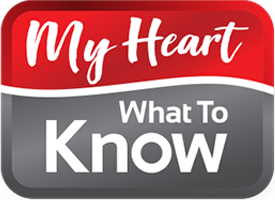Knowing the symptoms of a heart attack can be life-saving, as quick action is essential for effective treatment. Heart attack symptoms may vary between individuals, and some may be more subtle, especially in women. Here are the most common signs:
Key Signs and Symptoms
- Chest Pain or Discomfort: The most common symptom is a sensation of pressure, tightness, or squeezing in the chest. It may feel like someone is sitting on your chest and can last anywhere from a few minutes to hours and can fluctuate in intensity.
- Pain Radiating to Other Areas: Heart attack pain can spread beyond the chest to the shoulders, arms (usually, but not always the left arm), back, neck, jaw, or stomach.
- Shortness of Breath: Difficulty breathing, even while at rest, can be a warning sign. Shortness of breath often accompanies chest pain, but it can occur on its own.
- Sweating: Breaking out into a cold sweat, even if you’re not exerting yourself, is a potential red flag of a heart attack.
- Nausea or Vomiting: Feeling nauseated, with or without vomiting, is common and may be mistaken for indigestion or food poisoning, especially among women.
- Lightheadedness or Dizziness: Sudden dizziness or feeling faint can be a sign of reduced blood flow to the brain during a heart attack.
- Unexplained Fatigue: Feeling unusually tired, even after simple activities, is another common symptom, particularly for women, and may precede a heart attack by days or even weeks.
- Anxiety or Feeling of Impending Doom: Some people experience a sense of extreme worry or an overwhelming feeling that something is wrong right before a heart attack.
When to Seek Help
If you or someone nearby experiences one or more of these symptoms, especially chest discomfort combined with shortness of breath, lightheadedness, or radiating pain, it’s critical to seek immediate medical assistance. Calling emergency services quickly can be life-saving, as early treatment greatly improves the outcome of a heart attack.
—
An important step towards better health for many people is reaching a healthier weight, which can reduce the risk of cardiovascular disease. To find a physician near you who specializes in weight management, click here.
—
All the information provided on this site is for educational purposes only and is not a substitute for professional medical advice, diagnosis, or treatment. My Heart – What To Know is not a healthcare provider or clinic. ALWAYS consult with a qualified healthcare provider regarding any questions you may have about a medical condition. Never disregard professional medical advice or delay in seeking it because of something you have read on this website. If you think you may have a medical emergency, call 911 or go to the nearest emergency room immediately. No physician-patient relationship is created by this website or its use.
This article was sponsored by Novo Nordisk Canada. All content is created independently by My Heart – What To Know with no influence from Novo Nordisk.

